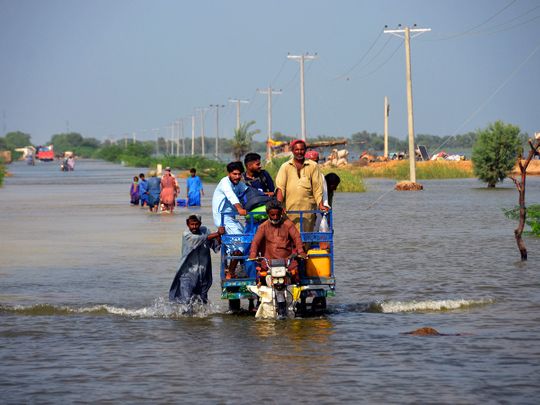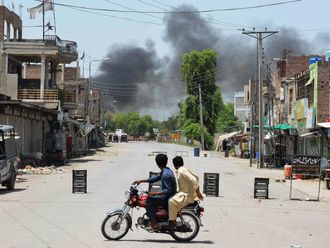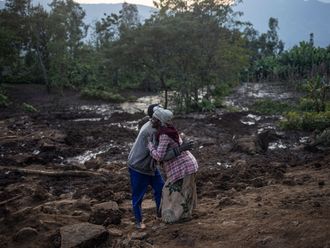
Islamabad/Karachi/Washington: Washington on Friday rolled over an agreement to suspend service payments on $132 million of Pakistan's debt, the U.S. embassy in Islamabad said, after devastating floods exacerbated the South Asian nation's economic crisis.
Pakistan's economy faces a balance of payments crisis, a widening current account deficit, a slide in its currency to historic lows, and inflation crossing 27%.
Severe floods engulfed large swathes of the country in late August, killing more than 1,500 people and causing damage estimated at $30 billion. The devastation fanned fears Pakistan would not meet its debt obligations.
The U.S. ambassador to Pakistan Donald Blome signed the agreement to extend the loan relief under the G20 debt service suspension initiative, the embassy said in a statement, adding: "Our priority is to redirect critical resources in Pakistan." The rollover is related to the Paris club agreement in April 2020 to support 73 lower income countries during COVID, under which the United States provided relief on $128 million in debt to Pakistan.
The agreement to suspend payments on that debt, plus an additional $4 million, has now been rolled over again.
Islamabad also sought a roll-over of $2 billion in Chinese deposits to its reserves, said a statement from Pakistan Finance Minister Ishaq Dar's office after his meeting with Chinese envoy Nong Rong.
It said Dar sought the ambassador's support in facilitating the roll-over of SAFE China deposits of $US2 billion due in March 2023.
Beijing has already refinanced the syndicate facility of $US 2.24 billion to Pakistan earlier this year.
Pakistan's outgoing finance minister Miftah Ismail said last week that Islamabad was seeking debt relief from bilateral creditors in the wake of flooding, but emphasised the government was not seeking any relief from commercial banks or Eurobond creditors.
The country's bonds had slumped to just half their face value, after the Financial Times said a United Nations development agency was urging the cash-strapped country to restructure its debt.
Ismail said the $1 billion bond would be paid on time and in full due later this year.
World Bank $2 billion aid
In the wake of the devastating floods across Pakistan, the World Bank is set to aid the farmers of flood-affected regions in Sindh with $2 billion in order to provide subsidies for fertilisers and certified seeds.
"We have to revive our flooded agro-industry by giving them some incentives," the Chief Minister of Sindh, Syed Murad Ali Shah said, adding that farmers were not in a position to purchase certified seeds and other pre-requisites for farming as floods wreaked havoc in the country, The News International reported.
Following torrential rains in southern Pakistan, heavy floods have damaged cotton crops which have turned the lives of farmers in Sindh upside down as the rains destroyed thousands of acres of agricultural land and orchards.
Various residents took to the street and staged a protest recently over the lack of help from the government as everything they had including their homes vanished in the floods.
According to the health department data, more than 2.5 million people have been affected by infectious diseases in flood-hit areas.
In a recent statement, the World Health Organisation expressed concerns about the potential for a "second disaster in Pakistan: a wave of diseases and deaths" following the catastrophic floods caused by climate change that has submerged one-third of Pakistan.
Explaining the impacts on health, the WHO chief suggested acting quickly to protect health and deliver essential health services.
Moreover, the "Super floods" in Pakistan have left 3.4 million children in need of immediate, lifesaving support, according to UNICEF.
This comes as the Monsoon rains claimed more than a thousand lives since June and unleashed powerful floods that have washed away swathes of vital crops and damaged or destroyed more than a million homes.
Record monsoons and heavy floods in Pakistan have given rise to hunger and various illnesses which have affected 33 million people and are estimated to have caused $30 billion of damage.









_resources1_16a30b3523c_small.jpg)

